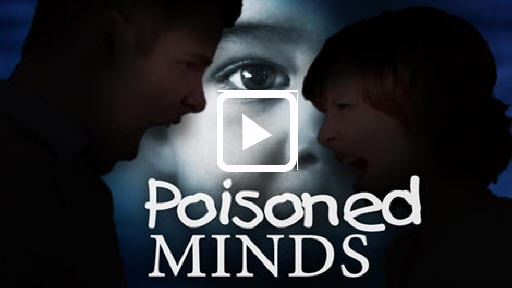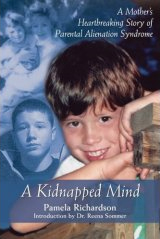Parental alienation gets a day
Tribune, U.S.A., By Kathleen Parker, May 12, 2006
Proclamations generally have the same riveting power as supermarket ribbon-cuttings, but a recent one in Maine is being celebrated as a small victory for children and noncustodial parents wounded by divorce.
The proclamation, signed by Gov. John E. Baldacci, recognized April 25 as "Parental Alienation Awareness Day."
If you don't know what "parental alienation" is, you probably haven't had the pleasure of a divorce with children. Veterans of those wars know without a governor's seal exactly what it means - agony for a noncustodial parent and emotional problems for children alienated from one parent.
Baldacci's proclamation is noteworthy in the age of divorce because it officially recognizes Parental Alienation Syndrome (PAS) as a psychological condition that can have lasting consequences for children torn between battling parents in high-conflict divorces.
Given the operative words "high-conflict," one can imagine that not everyone is applauding. Although PAS would seem to affirm common sense, it is a deeply divisive and controversial idea embraced by fathers' groups and often abhorred by mothers in divorce cases.
Fathers who feel disenfranchised when courts award custody of their children to the mother during divorce have used PAS successfully to pressure judges to allow greater access to their children. One can hardly blame men for trying to be fathers.
But critics claim that abusive fathers sometimes use PAS to force access where none should be granted. Mothers claim in such cases that they're trying to protect their children, not alienate them.
This latter argument became the centerpiece last fall of a controversial PBS documentary about abused women and children, "Breaking the Silence," that fathers' groups attacked as unbalanced and unfair.
No fathers were interviewed, and the cases reviewed tended to be extreme and sensational.
Several women interviewed, for instance, said that they lost custody of their children to abusive fathers (confirmed by the children themselves) when fathers used PAS to "prove" that the women were systematically teaching their children to hate their fathers.
Glenn Sacks, a radio show host and columnist, called the film a "direct assault on fatherhood," and organized a protest on his Web site. Others - many of whom I know and respect as fellow toilers in trying to advance fatherhood - joined in.
Sacks' campaign had an effect, and PBS ombudsman Michael Getler wrote a lengthy response agreeing that the show was unbalanced.
The focus on PAS as a tool of questionable value - no medical or psychological group recognizes PAS as a scientifically proven "syndrome" - makes the Maine proclamation a timely development for those who believe in its value in equalizing custody.
PAS was first identified in 1985 by psychiatrist Dr. Richard Gardner, himself a lightning rod among those who debate these issues. For years an expert witness in custody cases, Gardner (who committed a brutal suicide in 2003) has been variously hailed as hero or villain, depending on which way the court leaned.
To fathers, he was a godsend - an advocate for protecting children from the emotional fallout of divorce and the potentially lasting damage from over-identifying with one parent while hating the other. Given that children are part of both parents, hating one parent is tantamount to hating half of oneself. Can't be good for you.
To mothers, some of whom surely were trying to protect their children, Gardner is something else. Through the years, many tried to discredit him for his self-published library and the lack of peer review for his articles. Some called his work "junk science."
But Gardner's theory has gained traction in recent years. Today, there are some 133 peer-reviewed articles about PAS and more than 65 legal citations.
While I'm in no position to argue for or against the scientific integrity of PAS, anybody old enough to drink coffee knows that embittered divorcees can and do manipulate their children. Not just women, but men, too. But because mothers more often are awarded custody of children, they more often draft their children to share their bitterness.
The biggest losers in such cases, of course, are neither the mothers nor the fathers, but the children, who deserve to have unfettered access to both parents, assuming there's no abuse, without having to tote the adults' emotional baggage.
Whether parental alienation meets the scientific standards of a "syndrome" is a battle researchers can wage among themselves. The underlying message, meanwhile, is that there needs to be a presumption of shared custody following divorce, again, assuming no abuse.
Life is alienating enough without the help of one's own parents.
Kathleen Parker is a popular syndicated columnist and director of the School of Written Expression at the Buckley School of Public Speaking and Persuasion in Camden, South Carolina.
Copyright 2006 Tribune Media Services








